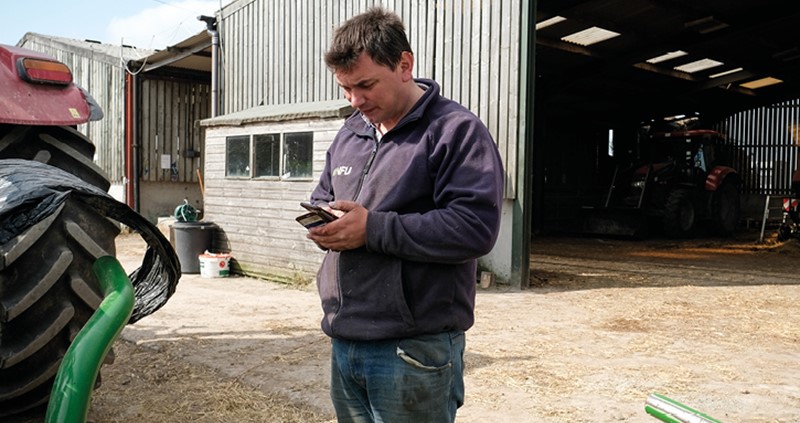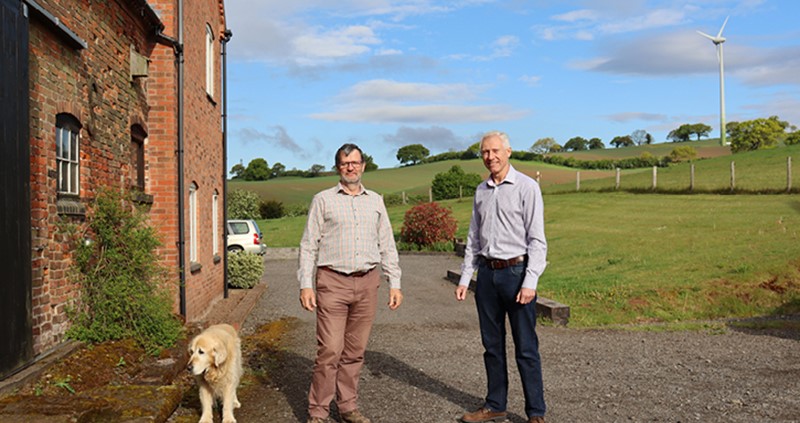Across the country we are aware of various initiatives being run by wildlife groups or conservation bodies to promote the creation or restoration of wildlife ponds with the main purpose of attracting great crested newts.
In some cases farmers are being asked to sign a letter committing to creating and maintaining the pond.
Limited funding may be available to cover initial costs.
The letters give access to the site for future monitoring by Natural England or the Wildlife Group. We are also aware of reverse auctions being used to secure pond creation.
Think about what's involved
As with any contract we urge farmers to think through the issues before committing. Below we highlight a few:
- Long-term commitment – Successfully creating a pond that supports great crested newts is a long term commitment, with a clear expectation that the pond is maintained long term for that purpose. Great crested newts are a protected species.
- Impact on land management – The creation of a pond could have implications for how land is managed around it e.g. buffer strips to protect water quality.
- Potential impact on ELMs – As you are entering in to a private agreement to create and manage a pond it is not clear whether that would lead to its exclusion from future support through ELMs (Environmental Land Management schemes). It is normal practice not to use public money to fund activity that is paid for through another route.
- Countryside Stewardship – In CS (Countryside Stewardship), private finance cannot fund the same activity. As pond management sits within the CS offer, ponds funded through the district licencing scheme will not be eligible for CS.
- Be clear which rights you are signing over – With new emerging environmental markets there may be other opportunities to secure payments for the public goods being delivered e.g., biodiversity net gain.
- Planning permission – It is possible that planning permission could be required, if local planning authorities consider ponds to be operational development.
More detail on the key points to consider when entering into long-term land management agreements can be found at: Environmental markets – are they right for you?
Consider Environment Act initiatives
The Environment Act introduces two initiatives that could be relevant.
Biodiversity net gain
There will be an opportunity to sell biodiversity net gain which pond creation would be, to developers. This would be a 30 year commitment to, in this case, create and manage a wildlife pond.
The management requirements would be set out in a contract.
Equally, the payments for creating and managing that pond over 30 years would need to be agreed.
Conservation covenants
The Act introduced conservation covenants.
A conservation covenant is essentially a land charge placed against the local land registry tying in future land owners to the covenant.
The covenant could be used to ensure the wildlife pond is managed in a prescribed way, potentially in perpetuity, binding in successors.
The creation of a conservation covenant requires a legal agreement between the land owner and a responsible body – there will be register of responsible bodies.
Conservation covenants have to be created by Deed, and there can be long-term implications of entering into any such agreement.
Detailed guidance on conservation covenants is expected to be issued later this year.
Seek advice before entering into contracts
We suggest you take professional advice before entering in to any long term land management agreement and to check what additional permissions may be required, and to ensure that you are aware of the implications of the agreement you are entering into.
The NFU’s panel firms may be able to assist with this, and support may be available through the NFU’s contract checking service.
NFU members can arrange a referral to their local panel firm or find about more about the contract checking service by contacting NFU CallFirst on 0370 845 8458.



